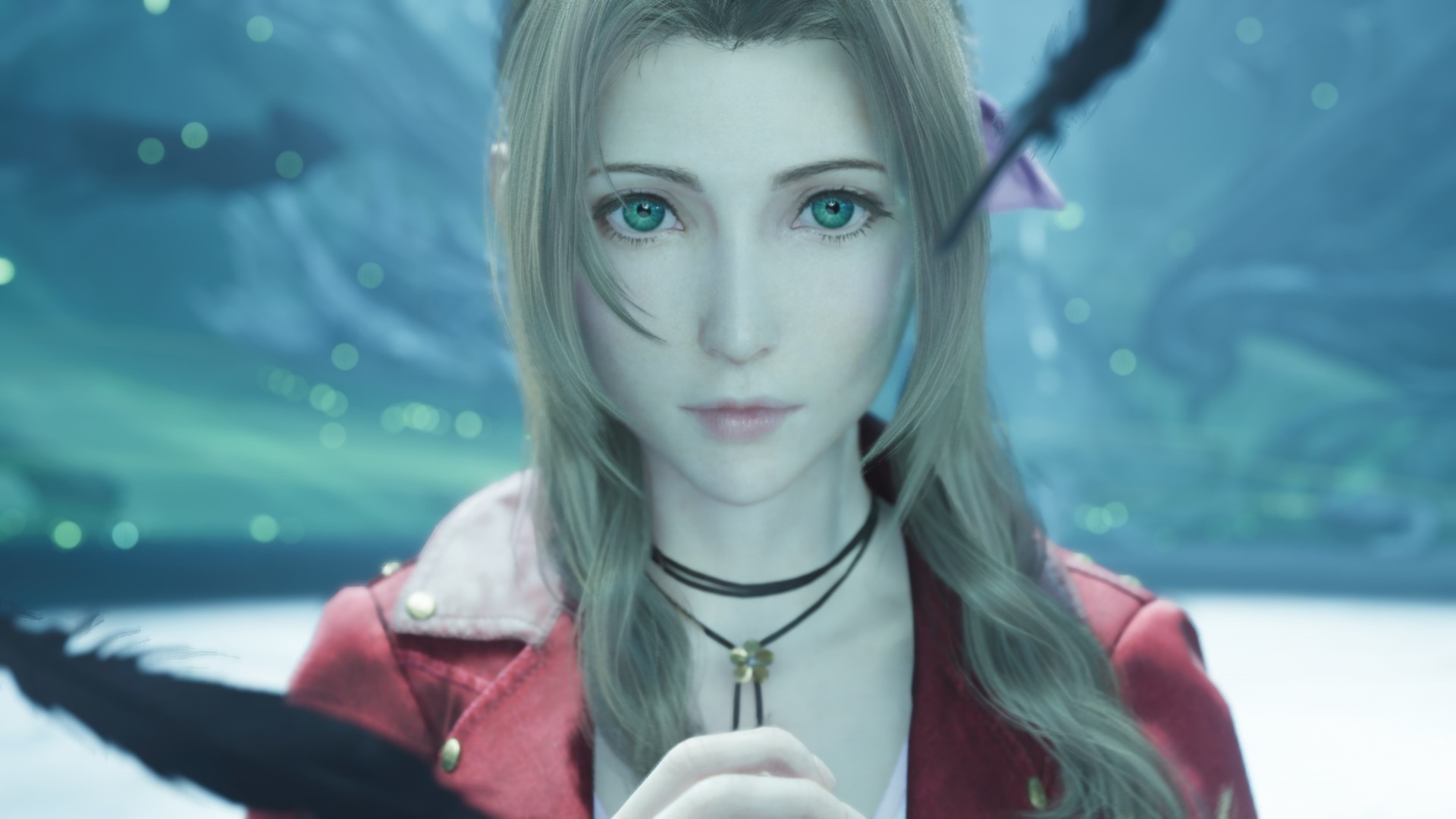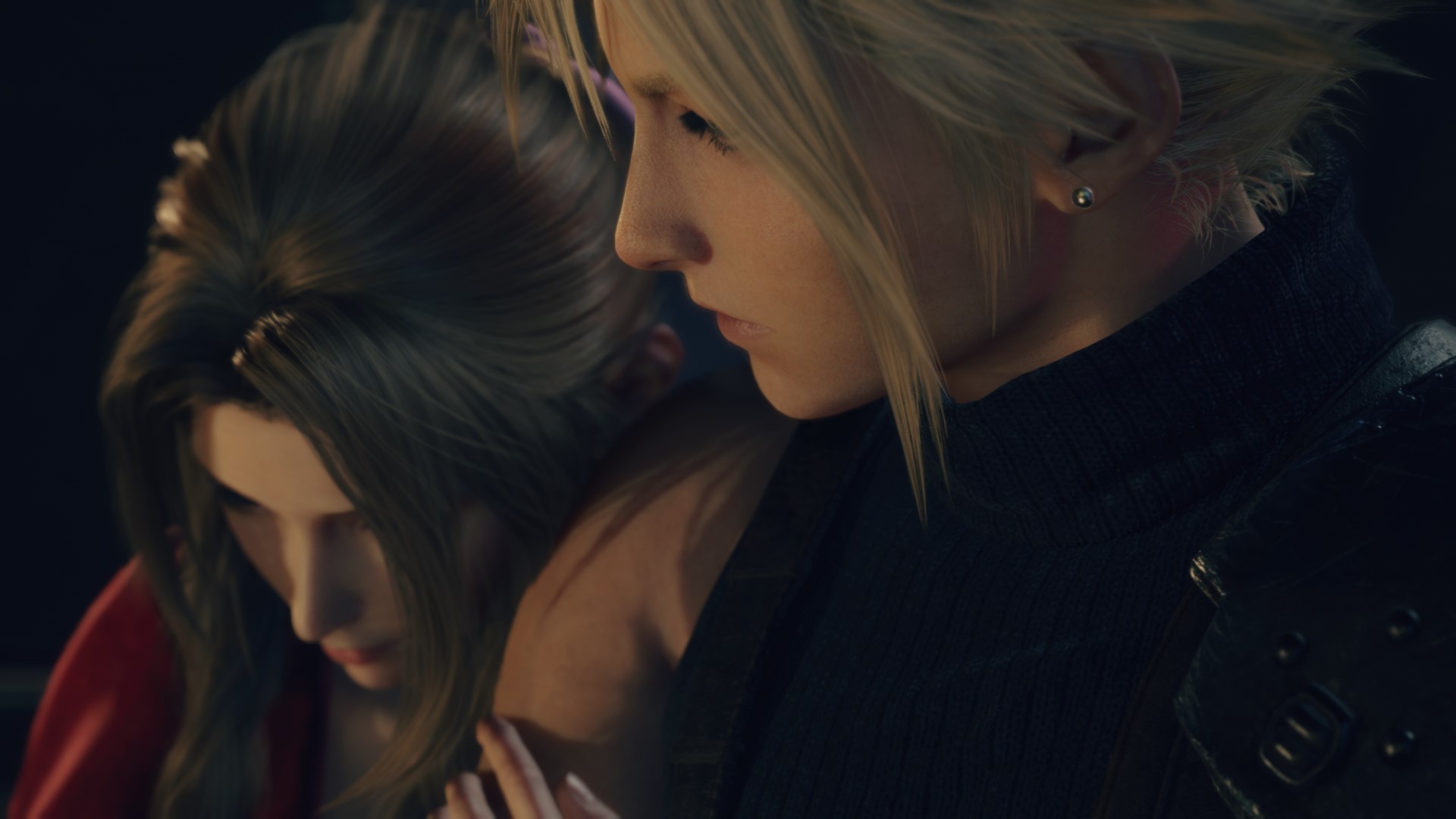The change to Final Fantasy 7 Remake’s ending makes sense the more you think about it
Hollow skies

Sign up for breaking news, reviews, opinion, top tech deals, and more.
You are now subscribed
Your newsletter sign-up was successful
A change to a line from the ending of the celebrated fantasy role-playing game (RPG) Final Fantasy 7 Remake has sparked debate, especially ahead of tomorrow’s release of its keenly anticipated sequel, Final Fantasy 7 Rebirth on PS5.
The change is small. Previously, at the close of Remake, Aerith remarks on leaving the megacity of Midgar in her trademark wholesome yet thoughtful way: “I miss it. The steel sky.” This line has been changed. Now she says: “This sky… I don’t like it.”
Though some won’t care for the change, I think it’s wholly in keeping both with the spirit and vision of Rebirth creative director Tetsuya Nomura and with the overarching themes of the remake trilogy.
The change comes across as a thoughtful exercise in foreshadowing. As one Twitter user remarked, the dialogue has moved “from reminiscing and longing” to “dread.” The implication is that there’s something out there - something that Aerith knows about that we don’t yet.
We already know that Aerith seems to have an awareness both of the established Final Fantasy 7 timeline and the new Final Fantasy 7 Remake timeline created when protagonist Cloud and his chums defeat the Arbiter of Fate at the game’s close.
Remake Aerith seems to be aware of her eventual death at the hands of Sephiroth
Earlier on in Remake, Aerith urges Cloud not to fall in love with her - a somber and emotional scene that doesn’t appear in the 1997 original. This led fans to speculate that Aerith might be aware of her own story, and cognisant of how Cloud’s feelings for her would only cause him pain down the road. This further implies that the Aerith of Remake is aware of her eventual death at the hands of Sephiroth - a sense that’s further supported by this change to her dialogue in the game.
Though subtle, this tweak helps to reinforce the notion that Aerith has insider information. It also helps highlight how, now the party has left the imposing metropolis of Midgar, they are more vulnerable and exposed, traveling out in the open beneath an indifferent sky. It's poetic, captivating and mysterious.
Sign up for breaking news, reviews, opinion, top tech deals, and more.
Nothing’s set in stone

The notion of going back and changing previous dialogue is also in keeping with Remake’s themes. The RPG is all about defying fate and rewriting the past. Though Sephiroth and the Shinra Corporation loom large as intimidating villains throughout the tale, our protagonists also tangle with the Whispers. These are a mysterious group of ghostly presences who seem hell-bent on ensuring that the story aligns with the established, canon events of the original 1997 version of Final Fantasy 7.
This comes to a head when we see Zack, Cloud’s mentor, who famously died before the events of Final Fantasy 7, is brought back to life. For the Final Fantasy 7 Remake trilogy, the timeline is mutable, an expression of the agendas of powerful characters rather than an unchanging reflection of cause and effect.
While this sort of storytelling can be too pretentious for some, I see it as a bold and innovative move. As Rebirth’s trailers like to remind us, “the unknown journey continues.” The implication here is that we can’t trust the past. Everything is on shaky ground. Just as Cloud’s struggles with his misremembered past and the influence of Sephiroth, we can’t necessarily trust our recollections, either. Where once there was stability, now there is uncertainty. In a way, Final Fantasy 7 Remake is gaslighting us, and, in doing so, invites us onto the same shaky ground as the game’s characters. It’s risky territory, but also stands as a brave act of reinvention for Final Fantasy 7.
This little alteration to Aerith’s dialogue is Square Enix’s way of telling us to hold onto our hats. Like it or not, change is coming.
Want more titles like Final Fantasy 7 Remake? Try our lists of the best RPGs and the best single-player games.

An editor and freelance journalist, Cat Bussell has been writing about video games for more than four years and, frankly, she’s developed a taste for it. As seen on TechRadar, Technopedia, The Gamer, Wargamer, and SUPERJUMP, Cat’s reviews, features, and guides are lovingly curated for your reading pleasure.
A Cambridge graduate, recovering bartender, and Cloud Strife enjoyer, Cat’s foremost mission is to bring you the best coverage she can, whether that’s through helpful guides, even-handed reviews, or thought-provoking features. She’s interviewed indie darlings, triple-A greats, and legendary voice actors, all to help you get closer to the action. When she’s not writing, Cat can be found sticking her neck into a fresh RPG or running yet another Dungeons & Dragons game.